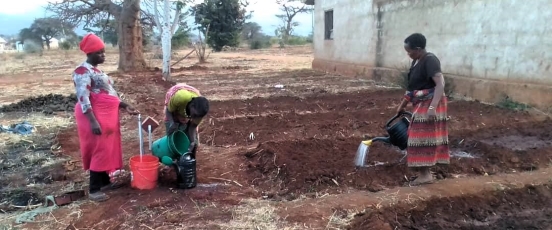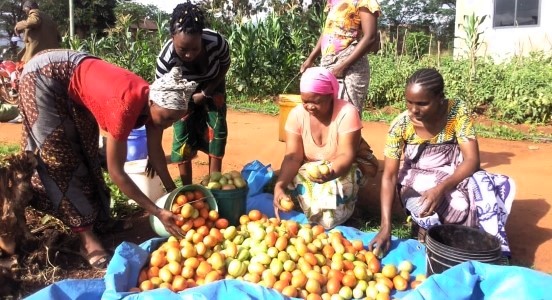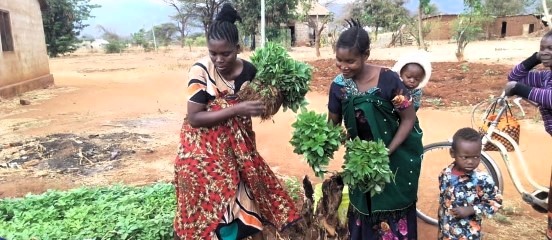The Juhudi women’s group from the Chamwino district of Tanzania is a force to be reckoned with. The 72 women farmers who make up the group now know that strength lies in numbers.
Whereas, once, they worked alone, tending crops and selling their produce on an individual basis. Today, the women farmers are unlocking the power of unity. By working together, they are on their way to building a thriving business collectively growing and selling fruit and vegetables that are in high demand.
After receiving training on horticulture from Farm Africa’s Joint Programme on Accelerating Progress Towards Rural Women’s Economic Empowerment, funded by the World Food Programme (WFP), the group members’ entrepreneurial spirits were piqued, realising that growing fruit and vegetables offered a way not just to improve their families’ nutrition, but also to boost their earnings.

By aggregating their harvests and selling in bulk, the women opened up opportunities to attract interest from high-value buyers.
The project gave the women the support they needed to start growing high-quality vegetables, including training in good agronomic practices, hybrid variety tomato seeds, 2,000 tomato seedlings (worth 200,000 Tanzanian Shillings (TZS)), pesticides, plant boosters and fertilisers.
Horticultural production is an attractive livelihood option for women farmers, being possible on small plots of land. Members of the group initially established a community garden on a half-acre plot of land where they could grow tomatoes and green vegetables such as amaranths, Chinese leaf and cowpeas.
A source of water was needed for irrigation, which initially was a barrier for the Juhudi group, who only had access to expensive tap water. However, once the project supported the group by installing a pipe to bring water from a water source one kilometre away to the community garden, it was all systems go.
Inspired by the success of the first community garden, a second community garden was quickly established on another half-acre plot. Green vegetables were the first to be planted due to both their nutritional value and their fast maturity times, meaning finances would soon be available to grow the business further.

Just a month after planting, the Juhudi group were able to start harvesting 126 bundles of Amaranths and 350 bunches of Chinese leaf, earning 142,800 TZS from the first harvest. The proceeds allowed the women to buy pesticides and fertilisers and pay their water bills so they could grow more green vegetables as well as start tomato production.
After harvesting the tomatoes and more green vegetables, the group’s earnings have increased to 2,223,500 TZS to date, with harvesting still in progress.
With a new mindset of seeing farming as a business, the group is now firmly committed to making horticulture their main source of income.
This piece was initially published on Farm Africa and has been revised to suit Farming First’s editorial guidelines.



